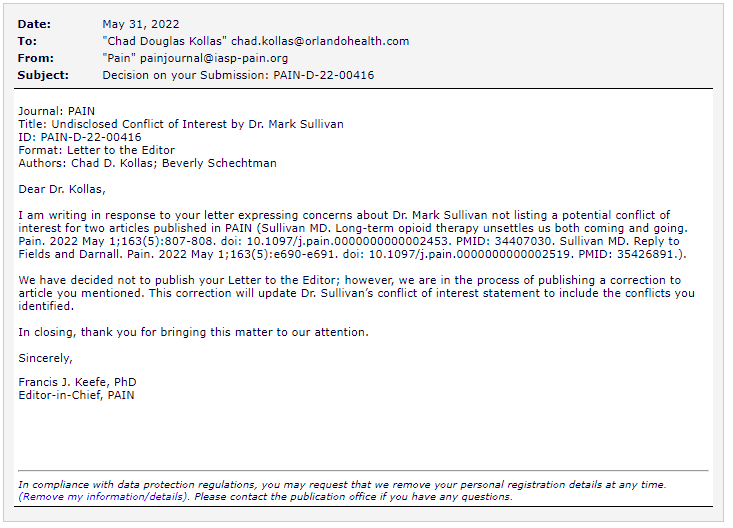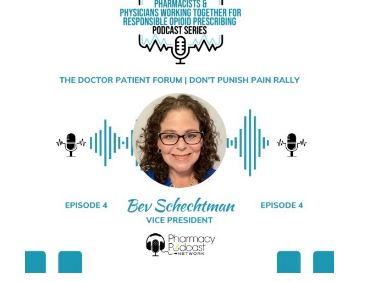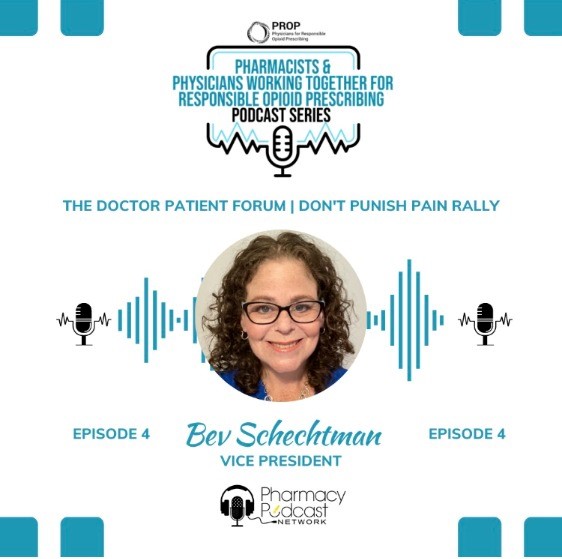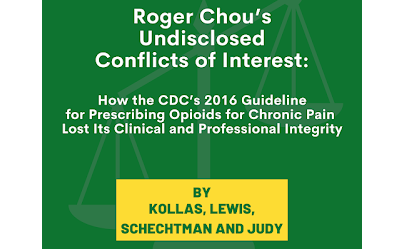- Details
- Hits: 2624
Dr. Mark Sullivan had an undisclosed COI in Dr. Jane Ballantyne's PAIN journal. Thanks to advocacy, this has been corrected.
In March of 2021, Dr. Mark Sullivan, a member of PROP (Health Professionals For Responsible Opioid Prescribing), was published in a journal run by Dr. Jane Ballantyne. Dr. Chad Kollas and a CPP, Carrie Judy, wrote a letter to the editor asking for a correction of Dr. Sullivan's stated COI's. Dr. Sullivan had worked as a paid expert witness in opioid litigation (I know, shocking), and didn't disclose this information in his COI's. It's so ironic because PROP always claims any pain org and patient advocates fighting for CPP's are just paid opioid lobby shills. Yet, the amount of money PROP members have made from the litigation narrative is undisclosed. Thanks to the letter from Dr. Kollas and Carrie, a correction was printed including Dr. Sullivan's updated conflict of interest.
In May of 2022, once again, Dr. Sullivan had several tapering articles in the same PAIN journal run by Dr. Ballantyne. Yet again, Dr. Sullivan didn't list his COI of working as an expert witness in opioid litigation. Dr. Chad Kollas and I sent in a letter to the editor asking for a correction. On May 31, 2022, we received a response (see image below) stating they decided not to publish our letter, but they would print a correction. Again.

On September 15, 2022, PAIN Journal, run by Dr. Jane Ballantyne (also a PROP member) printed this correction stating Dr. Mark Sullivan has, indeed, been a paid expert witness in opioid litigation.
We consider this a success. We are so grateful for the work of Dr. Chad Kollas and other CPP's like Carrie Judy who continue to fight for our community. We will continue to expose their lies and false narrative.
- Details
- Hits: 2244
NPR's show, 1A, had our VP, Bev Schechtman on a panel on November 11, 2021. The name of the segment is "Against The Pain: The Opioid Crisis and Medication Access." NPR became interested in the show after reading Maia Szalavitz's article about NarxCare in Wired. Listen to the recording of the show. You don't want to miss this!
"We have these people who have been on these meds for 20-30 years and doctors are under extraordinary pressure to get their numbers down" ~Maia
"In a criminalized environment where doctors are not only afraid of losing their license, but of going to prison, and where patients are being squeezed because they're being told 'you can only have x amount because otherwise my numbers are too high,' you end up with a lot of untreated pain." ~Maia
"I'd like to see context added (to these algorithms), if someone moves 3 times in 2 years, it needs to not look like they're 'doctor shopping,' I'd like to see a return to individualized care and stop these arbitrary guidelines where people are having a hard stop on what they can and can't have and they're not looking at what's actually going on with the patient." ~Bev
"I was treated like a criminal; I was mocked, laughed at, scolded, I was embarrassed...I felt revictimized." ~Bev
"There are tremendous gender and racial bias in these algorithms and in this false narrative." ~Bev
"No one should ever be denied care, that's just cruel and unusual punishment." ~Dr. Dombrowski
"Electronic Health Records are just a billing system, not to make patient care better...if you hit something by accident like malingering, next thing you know it's in the chart permanently. It's dangerous." ~Dr. Dombrowski
Dr. Mark Ibsen, who is a fierce advocate for the CPP community, recorded the show with running commentary.
- Details
- Hits: 1900
This article was published in Wired on August 11, 2021, written by Maia Szalavitz.
Topic: NarxCare, Opioid Risk Tool, and discrimination against women sexual abuse/assault survivors
Mentions our organization and quotes our VP, Bev Schechtman
The Pain Was Unbearable. So Why Did Doctors Turn Her Away?
"ONE EVENING IN July of 2020, a woman named Kathryn went to the hospital in excruciating pain.
A 32-year-old psychology grad student in Michigan, Kathryn lived with endometriosis, an agonizing condition that causes uterine-like cells to abnormally develop in the wrong places. Menstruation prompts these growths to shed—and, often, painfully cramp and scar, sometimes leading internal organs to adhere to one another—before the whole cycle starts again.
For years, Kathryn had been managing her condition in part by taking oral opioids like Percocet when she needed them for pain. But endometriosis is progressive: Having once been rushed into emergency surgery to remove a life-threatening growth on her ovary, Kathryn now feared something just as dangerous was happening, given how badly she hurt.
In the hospital, doctors performed an ultrasound to rule out some worst-case scenarios, then admitted Kathryn for observation to monitor whether her ovary was starting to develop another cyst. In the meantime, they said, they would provide her with intravenous opioid medication until the crisis passed.
n her fourth day in the hospital, however, something changed. A staffer brusquely informed Kathryn that she would no longer be receiving any kind of opioid. “I don’t think you are aware of how high some scores are in your chart,” the woman said. “Considering the prescriptions you’re on, it’s quite obvious that you need help that is not pain-related.”
Kathryn, who spoke to WIRED on condition that we use only her middle name to protect her privacy, was bewildered. What kind of help was the woman referring to? Which prescriptions, exactly? Before she could grasp what was happening, she was summarily discharged from the hospital, still very much in pain.
Back at home, about two weeks later, Kathryn received a letter from her gynecologist’s office stating that her doctor was “terminating” their relationship. Once again, she was mystified. But this message at least offered some explanation: It said she was being cut off because of “a report from the NarxCare database.”
Like most people, Kathryn had never heard of NarxCare, so she looked it up—and discovered a set of databases and algorithms that have come to play an increasingly central role in the United States’ response to its overdose crisis.
- Details
- Hits: 1189
"Where's the Patient's Voice in Evidence-based Treatment & Research?"
Our VP, Bev Schechtman, was a guest on Pharmacy Podcast Network.
Part 4 in the series "Pharmacist and Physician Opioid Collaborative" on Pharmacy Podcast Network.
Listen as Todd Eury, from Pharmacy Podcast Network, asks Bev a question that is long overdo..."What is the patient's perspective?"
"No one ever asks the patient what we think, we are kind of shoved out of it." ~Bev Schechtman
"But what they're missing, Bev, is they're missing the empathetic bedside manner to look you in the eye and give you a sincere little smile, showing they're there for me as a patient." ~Todd Eury
"We feel like everyone around us is going to treat us as though everything we say is a lie, that we're going to try to get out of whatever it is they think they're trying to catch us in, and we can't trust any of them." ~Bev Schechtman
"The way they set up the system patients can't be honest with our providers." ~Bev Schechtman
- Details
- Hits: 1463

Roger Chou’s Undisclosed Conflicts of Interest: How the CDC’s 2016 Guideline for Prescribing Opioids for Chronic Pain Lost Its Clinical and Professional Integrity
By: Chad D. Kollas MD, Terri A. Lewis PhD, Beverly Schechtman and Carrie Judy
“I'm present. Uh … I do have a conflict. I receive funding to conduct reviews on opioids, and I'll be recusing myself after the um, director's, uh, um, um, uh… update.”
- Dr. Roger Chou, Center for Disease Control and Prevention (CDC) National Center for Injury Prevention and Control (NCIPC) Board of Scientific Counselors (BSC) Meeting Friday, July 16, 2021.
Introduction
For those familiar with the controversial relationship between the anti-opioid advocacy group, Physicians for Responsible Opioid Prescribing (PROP, recently renamed, Health Professionals for Responsible Opioid Prescribing), and the Centers for Disease Control’s CDC Guideline for Prescribing Opioids for Chronic Pain — United States, 2016, (2) (hereafter called “the 2016 Guideline”), Dr. Roger Chou’s disclosure represented a stunning admission (3, 4). Chou had originally announced his intention to help influence opioid policy in a 2011 article that he co-authored with PROP’s founders (5), and he was a bold signatory to PROP’s 2012 Petition to the Food and Drug Administration (FDA) to change opioid labeling (6; See Figures 1a and 1b: First page and signatory page.)














